How to Use Horse Manure in Your Garden: A Comprehensive Guide
- February 15, 2024
- 1 comment
Horse manure is a valuable resource for gardeners seeking to enrich their soil naturally. As an organic matter, it not only improves soil structure but also enhances nutrient content, aiding in the growth of healthier plants. This guide provides comprehensive insights into how to effectively use horse manure in your garden.
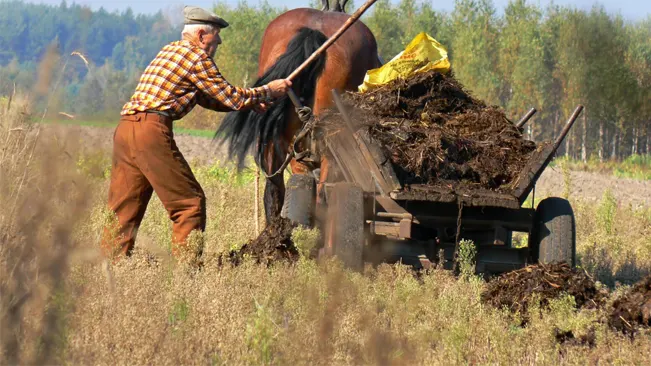
Understanding Horse Manure
Composition and Benefits of Horse Manure
Nutrient Content:
- Nitrogen (N): Essential for leafy growth and overall plant health. Nitrogen in horse manure helps in the formation of chlorophyll, which is vital for photosynthesis.
- Phosphorus (P): Crucial for root development, flower and fruit production. It plays a role in transferring energy within the plant.
- Potassium (K): Important for overall plant vigor, disease resistance, and helps in water regulation and protein synthesis.
Organic Matter:
- Horse manure is rich in organic matter, which is decomposed plant and animal residues. This organic matter is critical for improving soil structure. It helps to loosen and aerate clay soils and increases the water retention capacity of sandy soils.
- Organic matter serves as a food source for soil microorganisms. As these microorganisms break down the organic matter, they release nutrients slowly, making them available to plants over time.
- It also enhances the cation exchange capacity (CEC) of the soil, which improves its ability to hold onto essential nutrients.
Fresh vs. Aged Manure
Fresh Horse Manure
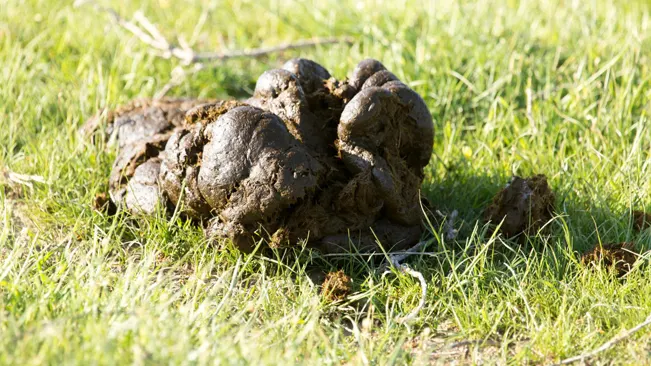
- Fresh horse manure contains high levels of ammonia, which can be too strong for plants, potentially causing root burn and other detrimental effects.
- It may also contain viable weed seeds and pathogens (like bacteria and parasites) that can be harmful to plants and humans, especially if used in vegetable gardens.
- The high moisture content in fresh manure can lead to anaerobic conditions, which are not favorable for plant growth.
Aged or Composted Horse Manure
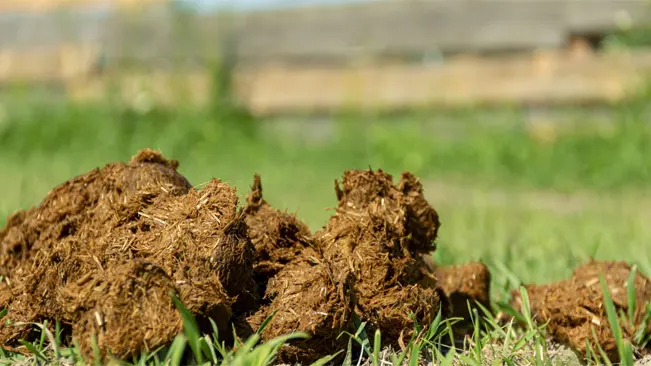
- Aging or composting horse manure involves allowing it to decompose over time. This process reduces the ammonia levels, making it safer and more beneficial for garden use.
- Composting generates heat, which can kill most weed seeds and pathogens present in the manure.
- The composting process also breaks down the organic matter into a more stable form, known as humus, which is excellent for improving soil health.
- Aged manure has a balanced pH and nutrient levels and is less likely to cause nutrient imbalances in the soil.
How to Compost Horse Manure
Setting Up a Composting Area: Choose a dry, shaded spot for your compost pile. Ensure it’s away from water sources to prevent nutrient runoff.
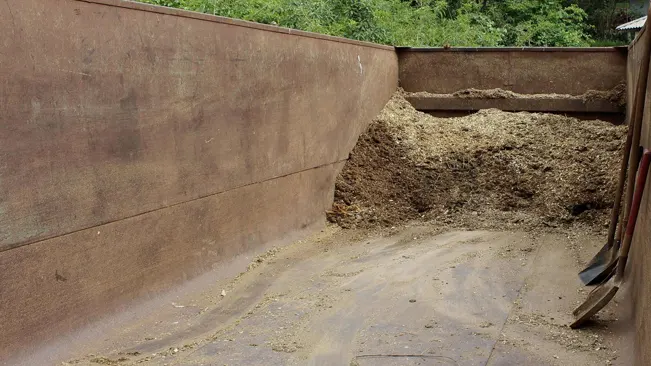
Building the Pile: Layer horse manure with carbon-rich materials like dry leaves, straw, or wood chips. This balances the nitrogen in the manure and aids in decomposition.
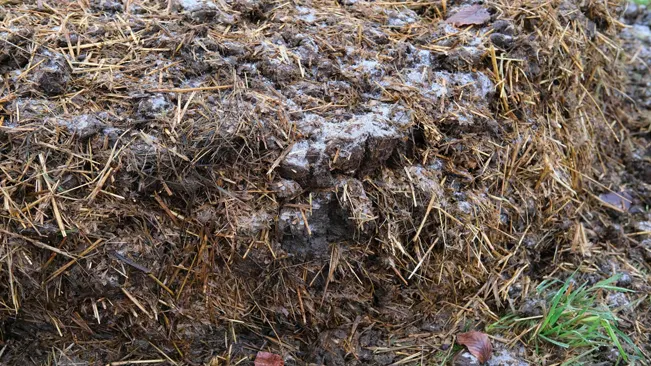
- Maintenance: Regularly turn the pile to aerate it, which speeds up the composting process. Keep the pile moist, but not too wet.
- Timeframe: Composting can take anywhere from three months to a year, depending on factors like pile size, turning frequency, and weather conditions.
Using Horse Manure in the Garden
As a Soil Amendment: Mix composted manure into your garden soil before planting. This improves soil fertility and structure.
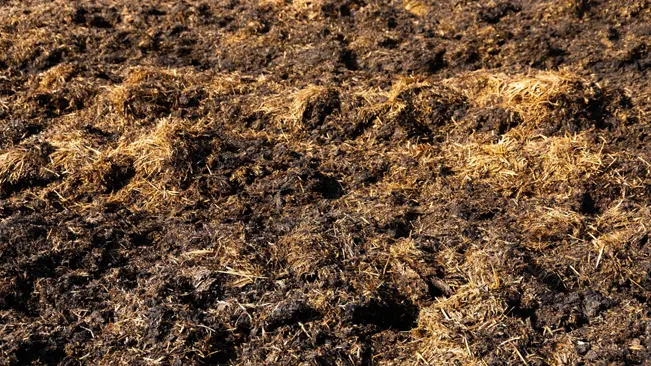
As a Mulch: Apply a layer of composted manure around plants to retain moisture, regulate soil temperature, and reduce weed growth.
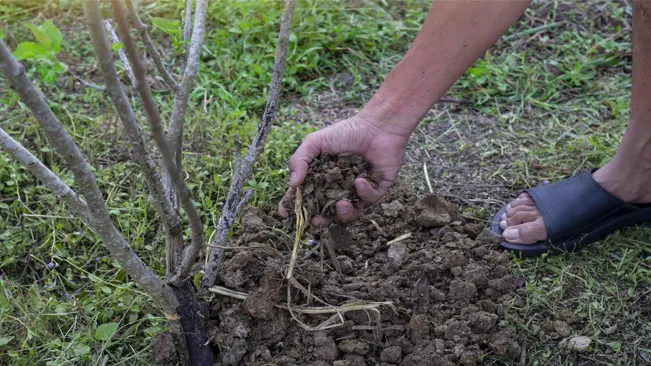
As a Liquid Fertilizer: Create ‘manure tea’ by steeping composted manure in water. Use this nutrient-rich liquid to water your plants.
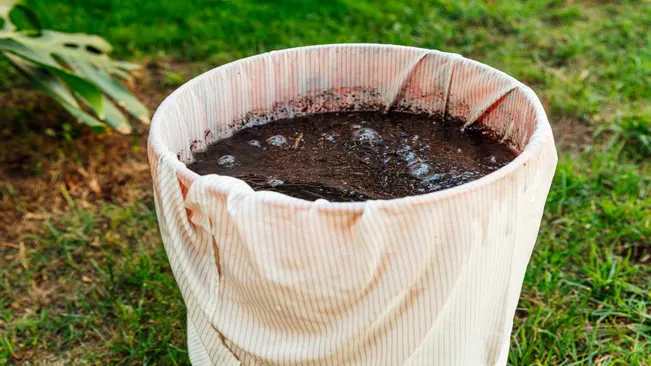
Safety and Precautions
Avoid Fresh Manure
- Risk of Plant Burn: Fresh horse manure is high in ammonia and other nitrogen compounds, which can be too harsh for plants, leading to “burning” or damage, especially in young, tender plants. This is due to the unbalanced and high concentration of nutrients in fresh manure.
- Pathogens: Fresh manure can contain pathogens harmful to both plants and humans. These include bacteria like E. coli and Salmonella, which are particularly concerning if the manure is used around edible crops. Pathogens in fresh manure pose a risk of contaminating soil and, subsequently, any vegetables grown in that soil.
- Composting as a Solution: To safely use horse manure, it should be composted. Composting allows the manure to break down, reducing the ammonia level and killing off many harmful pathogens through the heat generated in the composting process. Properly composted manure is safer for plants and humans and is a more balanced fertilizer.
Wash Produce Thoroughly
- Why It’s Important: When you use any type of manure in your vegetable garden, there’s a risk of contamination from microorganisms. These can be transferred from the soil to the produce.
- Proper Washing Techniques: To minimize health risks, it’s crucial to wash produce thoroughly before eating. This means using clean, running water and, in some cases, a brush for produce with a rough surface, like potatoes. It’s also a good idea to peel or cook vegetables where possible to further reduce any risk.
- Preventive Measures: While washing is important, it’s also wise to minimize direct contact between edible parts of the plant and the manure. For example, avoid applying manure close to the harvest time and use barriers like straw or mulch.
Consider Neighbors
- Odor and Flies: Fresh horse manure can have a strong, unpleasant odor and can attract flies and other insects. This can be bothersome to both the gardener and their neighbors.
- Proper Placement of Compost Pile: When setting up a compost pile with horse manure, consider its location. It should be placed in an area where the smell will be least disruptive, ideally away from both your own living spaces and those of your neighbors. Additionally, ensure it’s not too close to water sources to prevent nutrient runoff.
- Managing Odor and Pests: Regular turning of the compost pile helps reduce odor and accelerates the composting process. Covering the pile with a layer of soil, straw, or sawdust can also help control odors and flies.
Advantages of Horse Manure in the Garden
- Nutrient-Rich: Horse manure is a good source of essential nutrients like nitrogen, phosphorus, and potassium, which are vital for plant growth.
- Soil Structure Improvement: It helps in improving the soil structure. By adding organic matter, horse manure increases soil aeration, enhances water retention, and facilitates better root growth.
- Enhances Microbial Activity: The organic matter in horse manure fosters microbial activity in the soil, which plays a crucial role in nutrient cycling and soil health.
- Weed Reduction: When used as mulch, horse manure can help suppress weeds, reducing the need for chemical herbicides.
- Cost-Effective: For those with access to horse manure, it can be a cost-effective alternative to commercial fertilizers.
- Environmental Benefits: Using horse manure in the garden recycles waste and reduces the reliance on chemical fertilizers, contributing to sustainable gardening practices.
Disadvantages of Horse Manure in the Garden
- Potential for Weed Seeds: Horse manure may contain weed seeds, which can lead to unwanted growth in your garden. Composting manure properly can reduce this risk.
- Pathogens: Fresh horse manure can harbor pathogens harmful to humans, such as E. coli. It’s important to compost it thoroughly before use, especially in vegetable gardens.
- Odor: Fresh manure has a strong odor, which can be unpleasant for gardeners and neighbors.
- Insect Attraction: Manure can attract flies and other insects, which might be bothersome.
- Ammonia Content: Fresh manure is high in ammonia, which can burn plants if not properly composted.
- Heavy Lifting: Transporting and spreading manure can be physically demanding.
- Availability: For those without direct access to a farm or stable, obtaining horse manure can be more challenging compared to buying bagged fertilizers.
Conclusion
Using horse manure in your garden is a fantastic way to recycle waste while boosting the health and productivity of your garden. By following these guidelines, gardeners can safely and effectively utilize this natural resource, leading to a more sustainable and flourishing garden.
FAQs (Frequently Asked Questions)
- What nutrients does horse manure provide to the soil?
Horse manure is rich in essential nutrients like nitrogen, phosphorus, and potassium. It also adds significant organic matter that improves soil health. - Can I use fresh horse manure directly in my garden?
It’s not recommended to use fresh horse manure directly because it can be too potent and may harm plants due to its high ammonia content. It’s better to compost it first. - How long should horse manure be composted before using?
Ideally, horse manure should be composted for at least three to six months. This duration allows for adequate decomposition and the reduction of harmful pathogens. - Can horse manure be used in vegetable gardens?
Yes, but it should be well-composted to reduce the risk of pathogens that can contaminate the produce. - Does horse manure attract pests to the garden?
If not properly composted, horse manure can attract flies and other pests. Well-composted manure is less likely to have this issue. - How do I make compost with horse manure?
Layer horse manure with carbon-rich materials like dry leaves, straw, or wood chips. Turn the pile regularly and maintain adequate moisture for effective composting. - Is horse manure better than other types of manure?
Each type of manure has its own benefits. Horse manure is particularly valued for its balance of nutrients and high organic matter content. - How often should I apply horse manure to my garden?
Typically, applying composted horse manure once a year is sufficient. However, this can vary depending on your soil type and the plants you’re growing. - Can horse manure burn my plants?
Fresh horse manure can burn plants due to its high ammonia content. Composted manure is much safer and unlikely to cause this problem. - How does horse manure affect soil pH?
Horse manure is generally neutral to slightly alkaline. It should not significantly alter soil pH levels if used in moderation and when fully composted.

Kristine Moore
Forestry AuthorI'm Kristine Moore, a seasoned garden landscaping professional with over 30 years of experience. My extensive career has been dedicated to transforming outdoor spaces into stunning, sustainable landscapes. With a deep understanding of horticulture, design principles, and environmental stewardship, I have become a respected figure in the field, known for creating harmonious, visually appealing, and eco-friendly gardens. My commitment to excellence and continuous learning in landscaping trends and techniques has solidified my reputation as an expert in garden design and implementation.

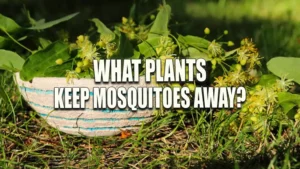
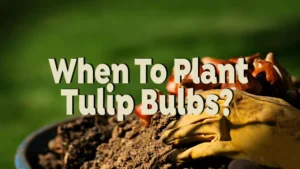

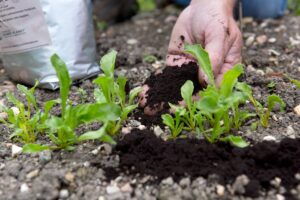





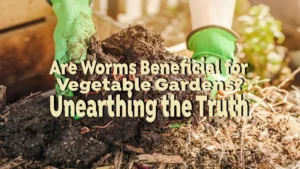


I noticed that the raised beds were contained with 6 by 6’s. The only 6 by 6’s I can get around here are pressure treated. Are yours PT?
Frank J. Vecchio
February 29, 2024 9:17 pm